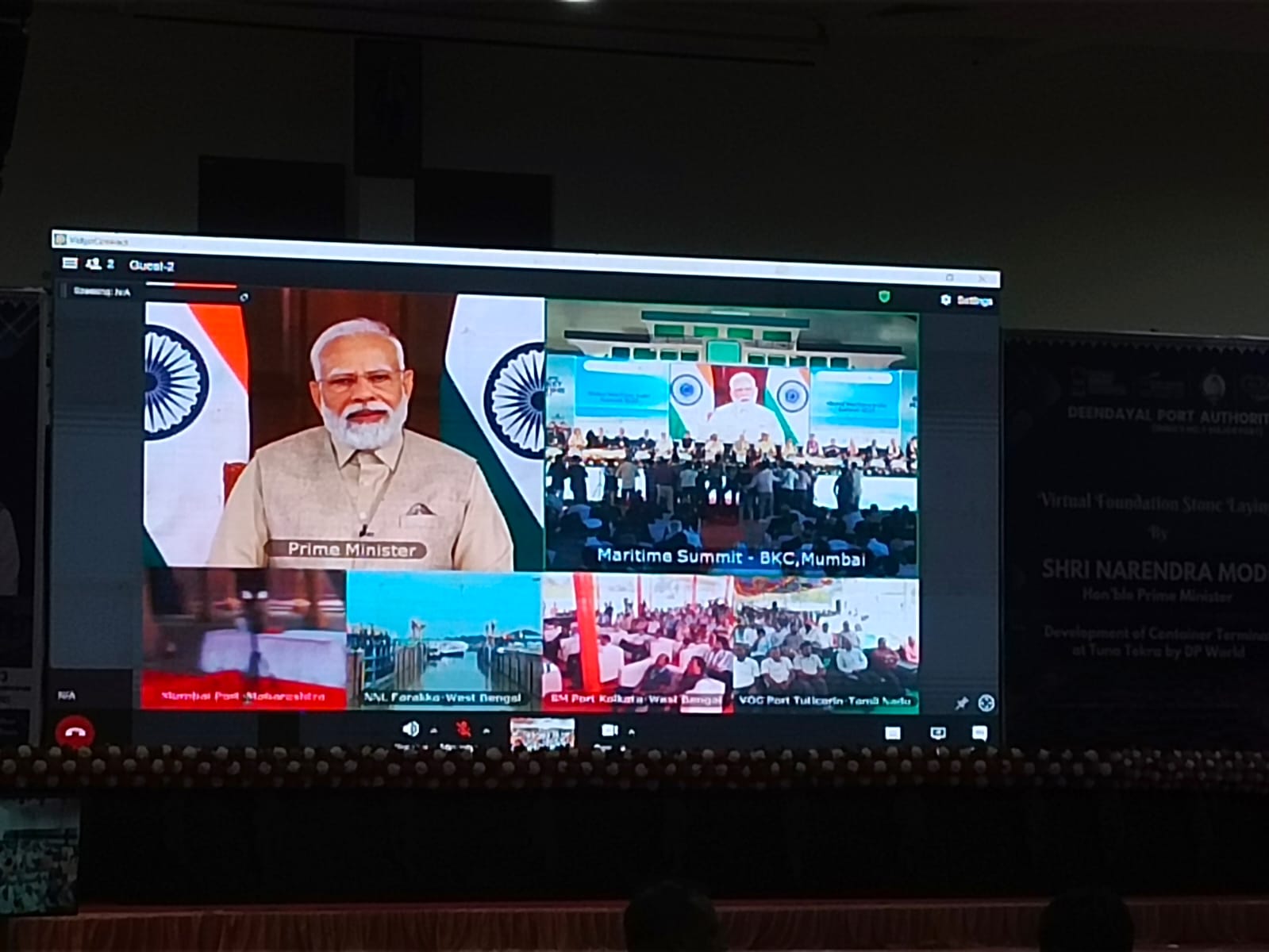
PM Modi lays foundation stone for development of Container Terminal at Tuna Tekra, DP World
- The greenfield terminal, with an annual capacity of 2.19 million TEU, will be capable of handling next-generation vessels carrying more than 18000 TEUs
- The project aligns with Amrit Kaal Vision 2047 to quadruple port handling capacity and develop multimodal logistics infrastructure to promote economic growth
GANDHIDHAM : Shri. Narendra Modi, Hon’ble Prime Minister of India laid the foundation stone for the ambitious project, “Development of Container Terminal on BOT Basis under PPP Mode” situated at Tuna-Tekra at Deendayal Port on Tuesday, 17th October marking a significant milestone for the Deendayal Port Authority and DP World. The new 2.19 million TEU per annum mega-container terminal on India’s western coast is expected to cater to trade demand from Northern, Western and Central India, connecting these regions to global markets.

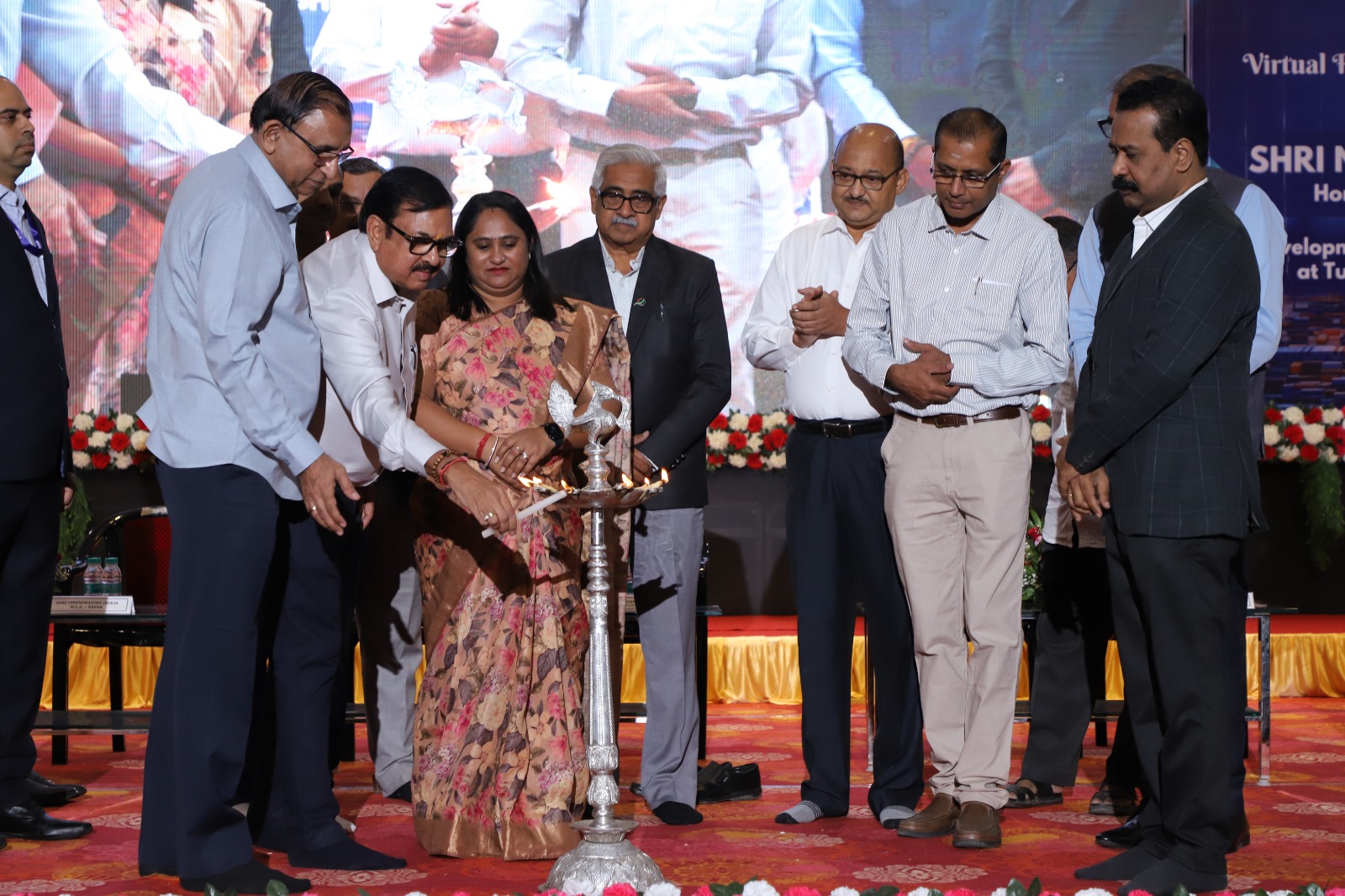
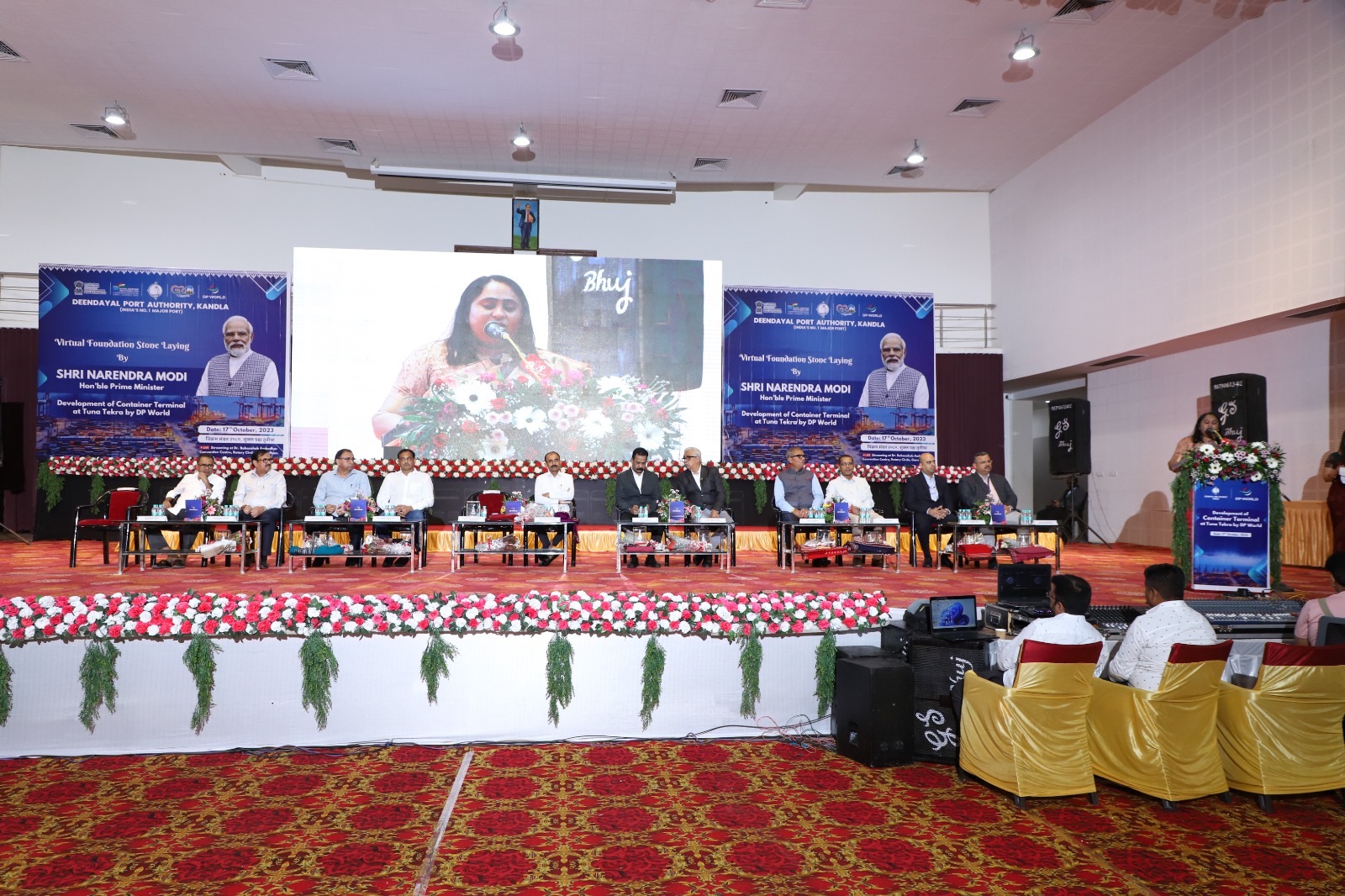
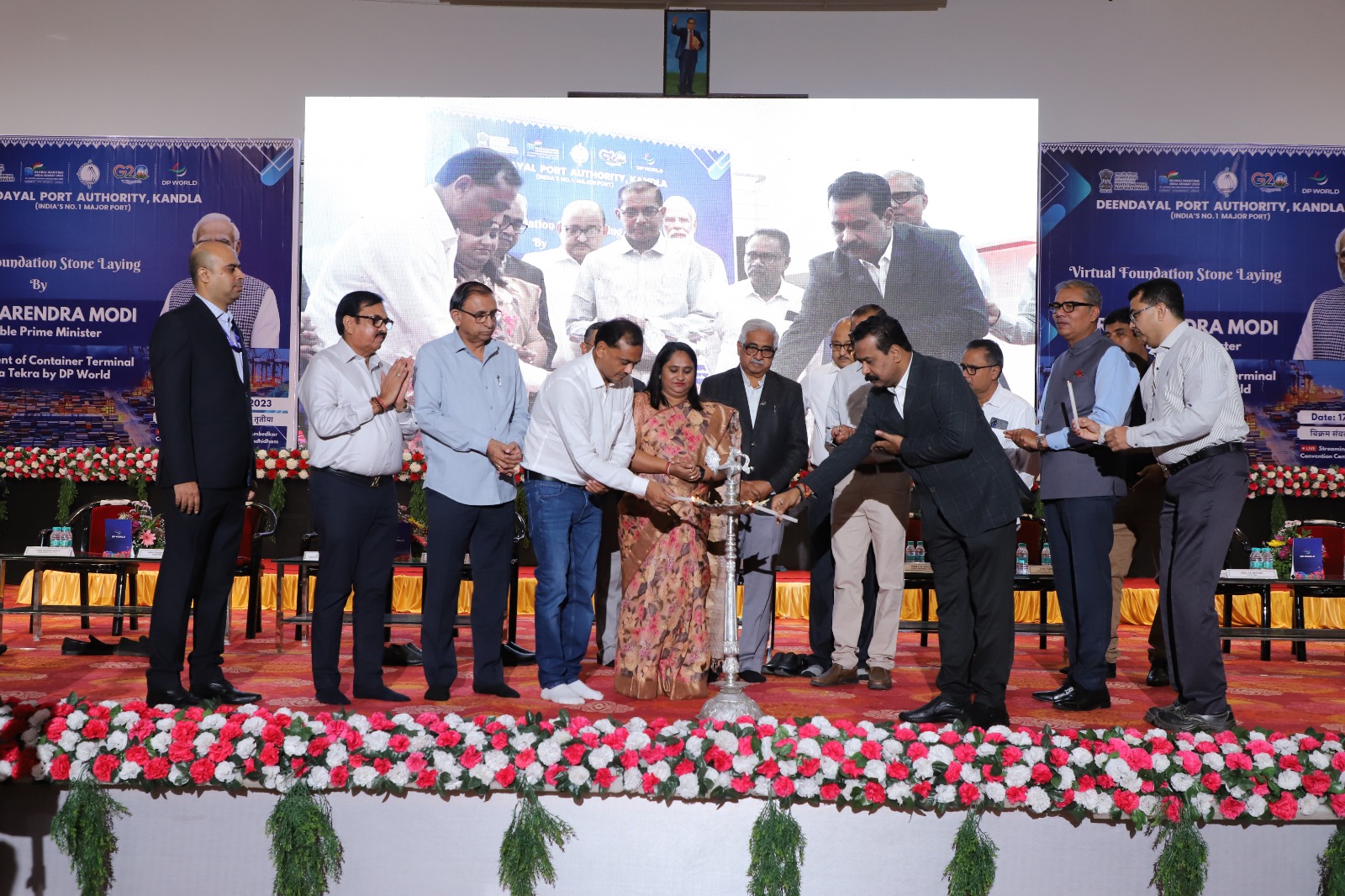
The momentous occasion was graced by the esteemed presence of Shri Janaksinh Jadeja, Hon’ble President, Kutch District Panchayat, Shri Virendrasinh Jadeja, Hon’ble MLA Rapar, Smt. Maltiben Maheshwari, Hon’ble MLA (Gandhidham), Shri Tejas Sheth, President, Gandhidham Municipality and Shri Suresh Joseph, Director (Projects), DP World, amongst others.

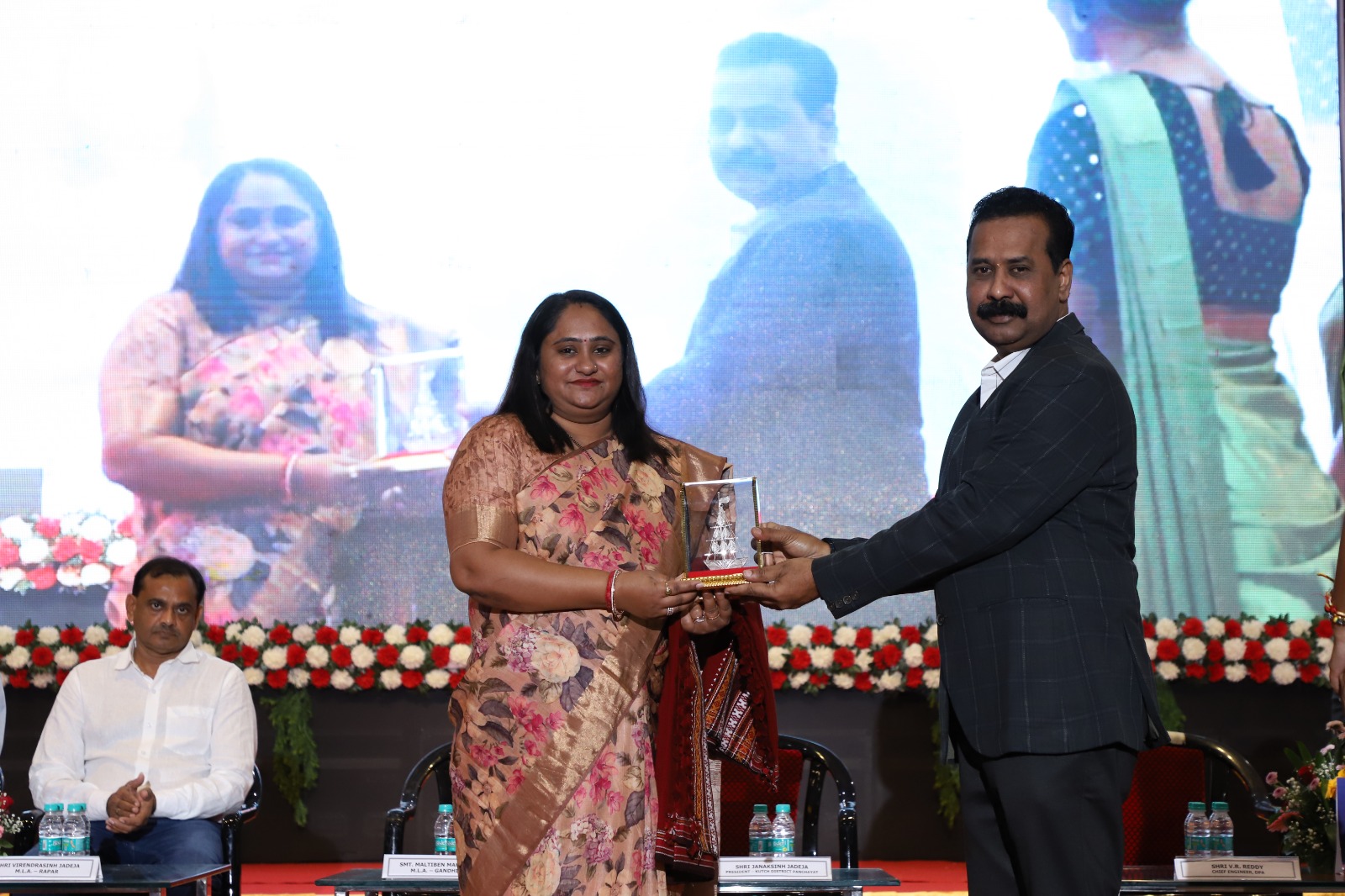
Shri. S K Mehta, Chairman of Deendayal Port Authority, expressed his enthusiasm for the partnership, stating, “This collaborative endeavor signifies our shared dedication to transforming India’s maritime landscape. The container terminal at Tuna-Tekra is poised to become a key hub for trade, not only in the region but on a global scale.”
Commenting on the ceremony, Rizwan Soomar, MD and CEO Middle East and North Africa & India Subcontinent said, “We are extremely happy to partner with Deendayal Port Authority in developing the Tuna-Tekra mega-container terminal. The foundation stone laying ceremony is yet another step towards our commitment to building a best-in-class port infrastructure that will connect Northern, Western, and Central India with global markets, drive economic growth in the hinterlands enabling us to grow the trade possibilities for all stake holders.”
The project is being developed through a Public Private Partnership (PPP) between the Deendayal Port Authority and Hindustan Infralog Private Limited (a joint venture between DP World and National Investment and Infrastructure Fund, India’s collaborative investment platform anchored by the Government of India) and is part of the National Infrastructure Pipeline and will complement initiatives of the Government of India, such as the PM Gati Shakti Master Plan and National Logistics Policy. The container terminal will be fully compliant with the green port guidelines ensuring sustainability in port operations by adopting best practices of port environment management contributing towards the long-term sustainability goals set out by the Government of India.
The project aligns seamlessly with the government’s vision of fostering economic growth and ensuring India’s competitiveness in the global maritime domain. It is anticipated to enhance port efficiency, facilitate smoother cargo movement, and drive economic prosperity in the region.
This collaboration marks a significant milestone in India’s maritime sector, underscoring the government’s unwavering commitment to revolutionize port infrastructure and bolster trade and commerce.
DP World currently operates five container terminals in India – two in Nhava Sheva, one each in Mundra, Cochin and Chennai – with a combined capacity of approximately 6 million TEUs. The new greenfield terminal at Tuna-Tekra, with an annual capacity of 2.19 million TEUs, will increase DP World’s combined capacity to 8.19 million TEUs. Once complete in 2027, the 2.19 million TEU per year terminal will have state of the art equipment and a 1,100 m berth capable of handling next-generation vessels carrying more than 18,000 TEUs. As part of this concession agreement the berth can be further extended to 1,375 million TEUs.

